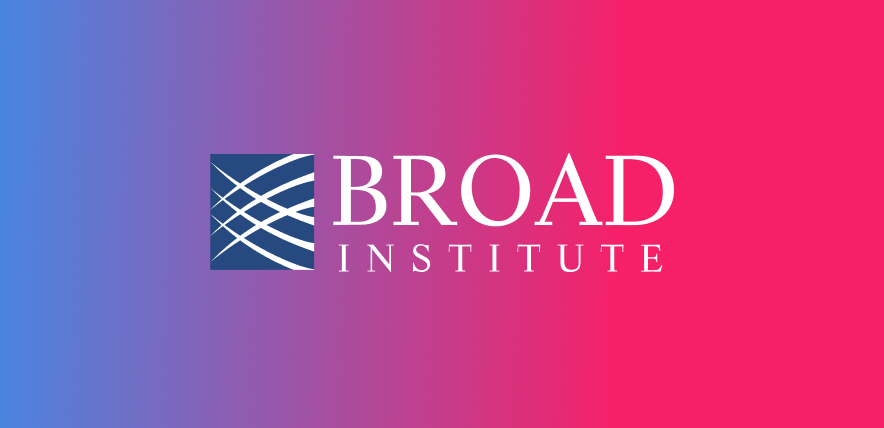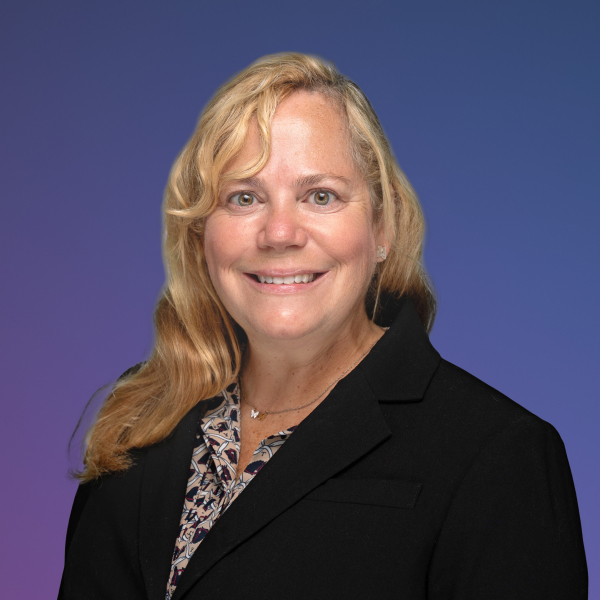Leveraging a multifaceted science and law background to support scientists at The Broad Institute
June 18, 2024 | 4 min readNicole Mastrangelo exemplifies how being a well-rounded professional helps her IP practice. She’s not only IP Counsel at The Broad Institute, but is also part-time faculty at Northeastern Law and is on the board of the artists’ rights foundation A Girl You Might Know. Nicole’s life outside of The Broad Institute is certainly rich, but her day job gives her plenty of diversity. In Nicole’s words, “At Broad, no two projects are the same. It could be an assay, a chemical compound, or a biologic. Every patent application from the beginning to end is different.” Luckily, her science background and teaching experience make her well-equipped to meet her role’s varying demands.
Discovering the intersection of science and law in the lab and the classroom
Originally a neuroscientist, Nicole was first exposed to the intersection of science and law when she began working with lab mice. For that study, she had to adhere to the legality of experimenting on lab animals and submit the study’s protocol for adhering with The Institutional Animal Care and Use Committee (IACUC). To be promoted at her company, scientists were encouraged to seek training outside the field. When it came time for her to do that, instead of getting an MBA like most of her colleagues, she pursued a Master’s of Legal Studies. There, she discovered that IP offered the opportunity to still be in the science world but not work in a lab day to day. As soon as she graduated from her Master’s, she started her law degree.
Fast forward to today, Nicole recently joined The Broad Institute, a biomedical and genomic research center that also collaborates with Harvard, MIT, and five Harvard-affiliated local Boston hospitals, to continue her love for supporting scientists, In the couple months since she’s joined, she’s been focused on embedding herself with her scientists. For her, that looks like going to their meetings, presenting to them, and teaching and guiding them on different aspects of IP. Even though Broad’s labs and PIs are extremely busy, Nicole’s team finds the time to meet with PIs and to get to know their scientists through them.
To effectively teach her scientists, she draws heavily on her experience as a professor. In addition to practicing patent law, Nicole teaches an IP Survey course to non-lawyer professionals that want more legal expertise to advance in their fields. Says Nicole, “Having the opportunity to teach IP to students in non-legalese has really aided my ability to fully grasp the content and explain it in a way that people can understand and re-articulate it for themselves.”
How Nicole understands and connects with scientists
Nicole’s focus on educating scientists comes from her past experiences in biotech. As scientists are typically not trained to understand the legalities of patents, Nicole and her team spend a lot of time training them: “As you can imagine, research associates and graduate students aren’t as privy to what IP is, how their work needs to be protected, and how their actions could potentially harm our ability to obtain issued patents.”
Though her scientist relationships at Broad have started out strong, in the past she’s used a specific strategy for building friendship and trust with those who’ve been harder to reach. In these cases, her approach is to ask them to teach her the science by asking lots of questions and emphasizing that they’re the experts. She aims to be an honorary member of their group. Then, that opens the door to teaching them about patent law.
With those relationships in place, scientists know to contact IP when they’re unsure of what to do or have made a mistake. One time at a former employer, a shipment was shipped overnight to a collaborator before the constructs were filed on. Since the scientists trusted Nicole, she was informed right away, and she was able to work with outside counsel to get an application filed before the constructs were delivered.
Navigating licensing for a nonprofit research organization and its contrast to biotech
When contrasting IP for academia at Broad with IP for biotech, Nicole points to differences in scientist motivations and the typical order of patenting operations. In academia, scientists really want to publish their work. They also might be applying for grants while the science is still early and hasn’t been filed with the various patent offices. In biotech, the main goal is to move through clinical trials to get therapeutics to patients, and publications don’t occur until after filings have been published. To best support nonprofit researchers, Nicole works to fully understand where the science is now and where it could be in the years to follow. Striking that balance between present and future innovations ensures that licensing potential is maximized, and the deals aren’t hindered.
To predict how science will evolve from its early stages, Nicole recommends investing in key events, vendors, and labs — and exercising caution along the way. She emphasizes having scientists actively go to conferences in the field to be able to relay what they find out there back to the IP team. To secure licensing deals, Nicole’s team reviews patent filings when the notice of allowance is sent and decides whether a continuation/divisional application should be filed. For her, there needs to be a balance between further prosecuting current unlicensed cases in favor of filing new cases that may have greater value.
But at the end of the day, licensing revenue isn’t the only way The Broad Institute measures the value of its IP:“As a nonprofit research organization, our scientists strive to be leaders in the field and hope to teach the scientific community. Investing in our scientists and their innovations is what, in my opinion, gives the Broad such prestige,” Nicole explains. “We retain key scientific leaders and effectively collaborate with biotech and pharmaceutical companies because we push scientific boundaries to further scientific innovations both here at the Broad and in the general scientific community. This is why the Broad finds it important to publish our work to ensure the benefits of genomic medicine .”
Nicole’s career showcases the benefits of taking up a non-legal lens when working in IP. We may not all be law school professors or former neuroscientists, but we can definitely take pages out of her book in stepping back, thinking about where our clients are coming from, and presenting IP to them in ways that resonate with them.


